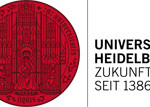Kate Tissington On The Right To The City In South Africa
No comments yetUrban land is of symbolic significance in South Africa because it is land that people of colour were historically denied access to. But the historically privileged still own, occupy and enjoy the best urban land.
The question is, why hasn’t our government been able to unlock well-located land in urban areas to provide housing for the people who need it most?
The historically disadvantaged continue to live on marginal land on the peripheries of South Africa’s cities and the apartheid city remains untransformed.
Both The South African Civil Society Information Service (SACSIS) and the Friedrich Ebert Stiftung South Africa Office (FES) wish to promote discussion about the transformation of the apartheid landscape in an effort to foster social cohesion in South Africa’s still largely racially and economically segregated society. The organisations co-hosted a panel discussion to interrogate the issue on 17 April 2014.
The event was opened by Renate Tenbusch, Resident Director of the FES South Africa office and the panellists who spoke at the event included, Mark Napier: Principal Researcher at the Built Environment Unit of the CSIR and co-author of the book, “Trading Places: accessing land in African cities”; Thembani Jerome Ngongoma: Member of Executive Committee of Abahlali baseMjondolo (shack dwellers’ movement); Louise Scholtz: Manager at World Wildlife Fund South Africa and leader on joint project with National Association of Social Housing Institutions; and Kate Tissington: Senior Researcher at the Socio-Economic Rights Institute of South Africa.
Overall, as a result of the contributions of this panel as well as questions and comments from the floor, it became clear that there is stasis, a lack of imagination and a lack of political will to house the poor and to transform South Africa’s apartheid cities. Much of this is happening within a highly corporatized free market environment where municipalities would rather sell off their land for short-term profit than invest in the long-term sustainability of their cities for inhabitants and future generations. Rent collection and maintenance of rental housing stock are activities that South African municipalities simply do not want to burden themselves with.
Kate Tissington argued that her organisation’s work was to help extend poor people’s right to the city. For example, by resisting evictions and pushing local government to provide alternative accommodation when people are being evicted or when shacks are being demolished.
The absence of a pro-poor developmental local government perspective to deal with the housing backlog is a fundamental problem, she argued.
The odds are against the poor in terms of improving their access to the city. There is major contestation over well-located land. But those with money are winning, as the drive towards gentrification targets better off residents.
Consequently, affordability is a major constraint. For example, more than half of Johannesburg’s inner city residents earn less than R3,200 per month. They are typically employed as domestic workers and security guards. Thus, there is a massive gap between what people are earning and what is made available to them in terms of housing options.
Comments
Leave a Reply





